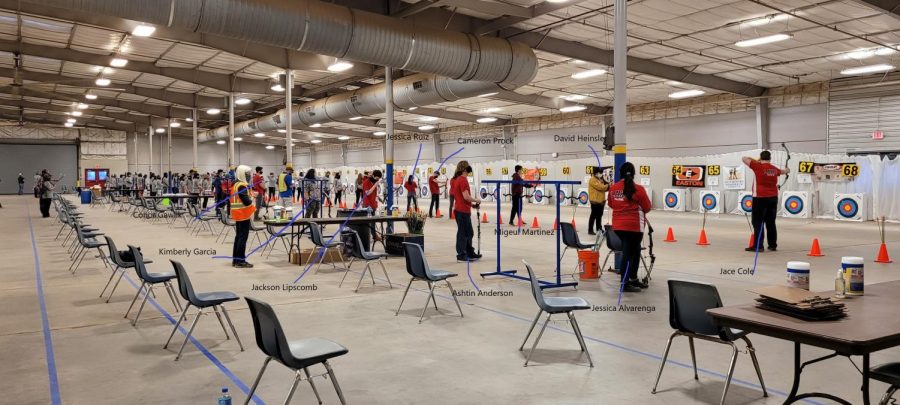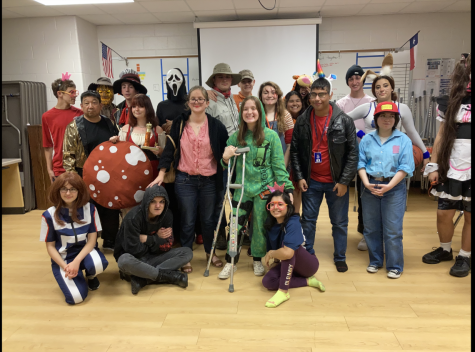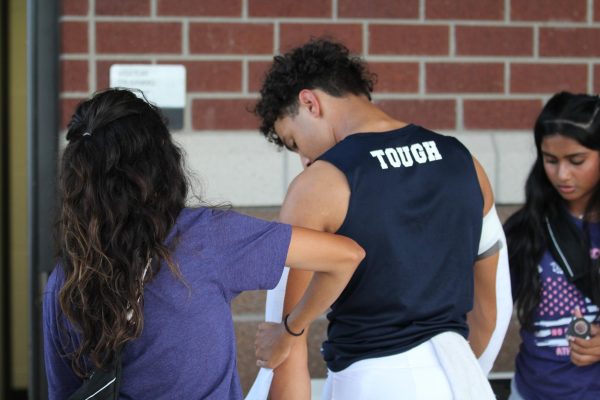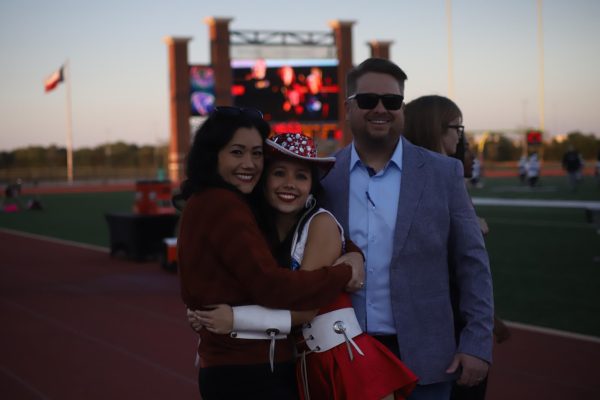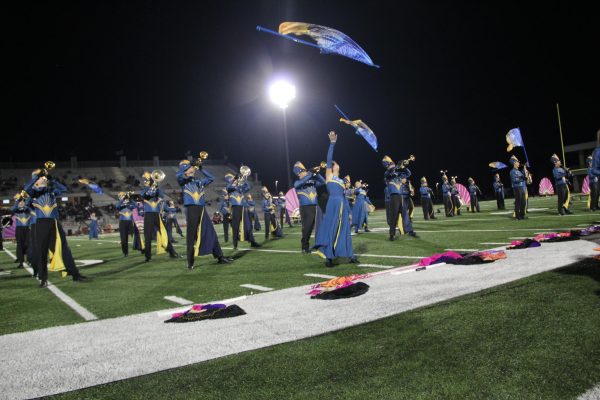JROTC Archery Back at State
January 25, 2022
For the third year in a row, the JROTC Archery Team led by co-captains Cadet Command Sergeant Major Conor Gawlik and Cadet First Lieutenant Yuneidi Mota-Trinidad, will be returning to the National Archery in Schools Program Texas State competition.
The preliminary qualification rounds were shot Wednesday, Jan. 19 at the local Gulf Coast Archery Range. Qualifications took four hours for a team of twenty-eight cadets to shoot three scores, with only the best scores being submitted to the state selection committee.
The National Archery in Schools Program (NASP) is an international marksmanship program designed to be taught by certified teachers in physical education classes. Archery is a sport that can be enjoyed by students of all sizes, genders, abilities, and backgrounds.
At Clear Lake High School, the class is the Junior Reserve Officer Training Corps and taught by First Sergeant Thomas Sotsuda. The archery team is an after-school session that runs from 2:40 to 4:30 in room 4062, JROTC’s indoor practice range for archery, drill, and air rifle.
The JROTC archery team consists of more than thirty shooters, male and female, from first-year students to seniors. Half of the team is new to the sport, but six months of weekly practice and monitored training shaped them into expert shots.
“Archery is a way to distract me from everything that is going on in my life,” Cadet Master Sergeant Cyrus Griffin said. “I am so focused on getting the highest score in this loving sport that I completely ignore everything around me. As my second year in JROTC, it is safe to say I would love to come back to state and do my best for my school.”
The team uses a method called “11 Steps to Archery Success.” This same method is used by Olympic athletes and is one of the core practices that NASP teaches.
“Archery, unlike any other activity, is what keeps me coming back to school, to the JROTC program,” Cadet Master Sergeant Jessica Ruiz said. “After attending my first ever state competition last year, I’m even more eager for this upcoming competition.”
Safety is a heavily disciplined aspect of the team. Before allowed on the range, each shooter must learn the whistle commands used on the range, proper range etiquette, and proper handling of the bow and arrows, and must prove this knowledge by completing a safety test with a score of no less than 100%.
This strict policy has led to an accomplishment First Sergeant Sotsuda is proud of: there has never been a single accident on the range.
“I miss the community and the satisfaction of honing a skill each day,” former teammate Cadet First Lieutenant John Ebel said. “Especially watching as the people around me grew with each passing day.”
Of the last two years, one state competition was cancelled due to the COVID-19 pandemic and another was shot in the face with a series of unfortunate circumstances.
Cadet First Lieutenant Jessica Alvarenga is also excited to get back to state.
“We were all really tired and exhausted on the bus and when we got there, everyone was anxious,” Alvarenga said. “We didn’t get any time to chill and calm our nerves.”
This year, the team is booking a hotel for an overnight stay to ensure that everyone is well rested.
Former Team Captain, Cadet Major Hannah Klippel is the only senior on the team. It is her last chance to get back to state and continue on to the United States National Tournament. For the first-year cadets, it will be their first major challenge.
The team is looking forward to the upcoming challenge in March.


